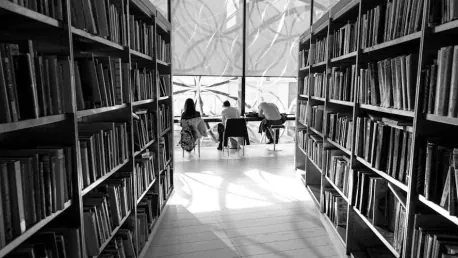Public education, a cornerstone of democratic societies, often finds itself under scrutiny, with critics highlighting perceived shortcomings and deficiencies in the system. This issue recently came to light in a series of writings by Eric Keller, which prompted a response from Brian Farkas, a dedicated public educator. Farkas penned a thoughtful letter addressing Keller’s concerns, reflecting not only on the criticisms but also on the importance of maintaining an open and honest dialogue about public education.
Addressing Concerns and Misconceptions in Public Education
Importance of Direct Communication between Parents and Teachers
Farkas begins by commending Keller for his high expectations of the public education system, emphasizing that such standards are essential for driving improvement. However, he suggests that rather than relying solely on written critiques, parents like Keller should engage directly with teachers and school administrators to address any specific concerns about their children’s education. This direct approach ensures that issues are understood in context and can be resolved collaboratively, promoting a more transparent and effective communication channel.
Engaging directly with educators allows for a comprehensive understanding of the intricate challenges faced by teachers daily. These professionals are often on the front lines, dealing with diverse student needs, varying levels of parental involvement, and the constraints of standardized curricula. By communicating openly with teachers, parents can gain a more nuanced perspective of these challenges and work in partnership to create an optimal educational experience for their children. Farkas underscores this by advocating for honest and open-minded inquiry, warning against the dangers of relying solely on potentially biased online sources.
The Role of Honest, Open-minded Inquiry in Education
Farkas points out that Keller’s negative attitude towards public education might be influenced by confirmation bias, where one seeks information that supports preconceived notions rather than adopting a balanced perspective. He quotes writer Andrew Lang to reinforce this point, warning against using data and anecdotes like a “drunk uses a lamppost—for support rather than illumination.” According to Farkas, scientific inquiry aimed at truth should be the foundation of any critique, rather than cherry-picking information to substantiate an existing bias.
Efforts to paint the entire public education system with the same broad brush can lead to misconceptions and a lack of appreciation for the dedicated efforts of many educators. Farkas’s appeal to intellectual honesty serves as a reminder that comprehensive education reform and improvement depend on a thorough understanding of multifaceted issues. He critiques Keller’s generalizations about the state of public education, especially during the tumultuous period of the COVID-19 pandemic, highlighting that such assessments often lack the depth and context necessary for constructive critique.
Recognizing the Impact of the COVID-19 Pandemic on Education
Challenges and Unprecedented Situations Faced by Educators
Farkas acknowledges the significant disruption the pandemic caused to the quality of education but insists that this period should not serve as the sole basis for condemning the entire system. The abrupt shift to remote learning, fluctuating virus waves, and inconsistent access to technology made this period exceptionally challenging for both students and educators. Despite these obstacles, many teachers went above and beyond to adapt, finding innovative ways to engage students and maintain academic standards under difficult circumstances.
The dedication of educators during the pandemic underscores their commitment to their students’ learning and well-being. Farkas emphasizes that while the pandemic undoubtedly highlighted vulnerabilities within the system, it also showcased the resilience and resourcefulness of educators. By acknowledging these efforts, Farkas urges a balanced perspective that recognizes both the flaws exposed by the pandemic and the tireless work of teachers to surmount these challenges. A nuanced understanding is crucial for fostering constructive discussions about how to address the shortcomings revealed by this global crisis.
The Call for a Balanced and Evidence-based View
Public education, a fundamental element of democratic societies, often faces scrutiny, with critics pointing to perceived flaws and inadequacies. This issue has recently gained attention through a series of writings by Eric Keller, which stirred a response from Brian Farkas, a committed public educator. Farkas wrote a thoughtful letter addressing Keller’s concerns, highlighting not only the criticisms but also underscoring the significance of fostering an open and honest dialogue about the state of public education.
In his letter, Farkas emphasized that critiquing the public education system should be a pathway to improvement rather than simply pointing out the flaws. He acknowledged the challenges faced by educators and the system itself but also argued the importance of providing support and resources to overcome these obstacles. He called for collaborative efforts among educators, policymakers, parents, and the community to create meaningful change. Farkas’s response serves as a reminder that while public education may have its shortcomings, addressing them constructively through dialogue and cooperation can lead to significant advancements.









